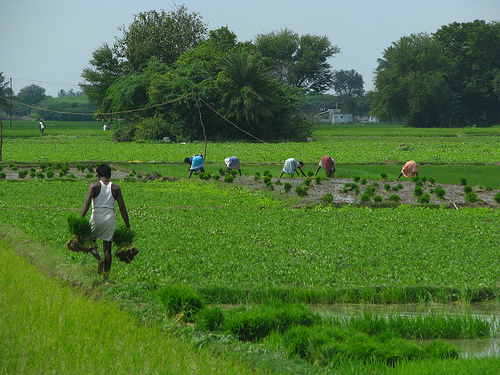

 The House Foreign Affairs subcommittees on International Organizations, Human Rights and Oversight and Africa and Global Health held a joint hearing Tuesday afternoon overseeing the Administration’s Feed the Future Initiative. President Obama has committed $3.5 billion in new funding over 3 years to fund the initiative, which will fight food insecurity in 20 target countries in Africa, South America and Asia. This money will leverage $22 billion in international funding pledged by the G20.
The House Foreign Affairs subcommittees on International Organizations, Human Rights and Oversight and Africa and Global Health held a joint hearing Tuesday afternoon overseeing the Administration’s Feed the Future Initiative. President Obama has committed $3.5 billion in new funding over 3 years to fund the initiative, which will fight food insecurity in 20 target countries in Africa, South America and Asia. This money will leverage $22 billion in international funding pledged by the G20.
While Rep. Dana Rohrabacher (R-CA) questioned the worth of borrowing more money to help people in countries ruled by corrupt or oppressive regimes, other members were more optimistic about the initiative. Rohrabacher, skeptical of “transfers of wealth” to the populations suffering from chronic hunger, called for a more “hard-headed” approach. Conversely, Rep. Lynn Woolsey (D-CA) explained how failure to attack world hunger at its roots will render other foreign assistance goals, such as education, stability and economic growth, impossible.
Witnesses Patricia Haslach (State Department) and William Garvelink (USAID), coordinators for Diplomacy and Development at the Office of the Coordinator for Global Hunger and Food Security Initiative, reiterated that Feed the Future is an international collaboration. The working committee in charge of Feed the Future is committed to holding donors accountable, coordinating the efforts of all stakeholders, and requiring investment plans that are specific to needs of the countries in which they are applied. Garvelink closed with an important reminder: “security is determined not by promises, but by results.” To be successful, the initiative will need U.S. leadership in global engagement, consultation and action.
Photo Credit: mckaysavage
Notifications